TechnoLive: How to create a successful mobile game, Ivan Fedyanin
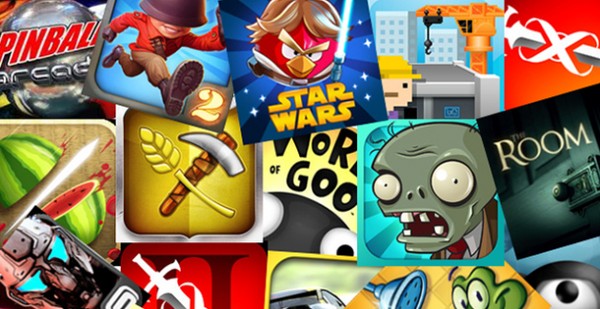
Hi, Geektimes! We continue to publish transcripts of our broadcasts about game development. Today, you will see the story of Ivan Fedyanin, head of the Fast Forward studio, about the choice of a genre and niche when creating a mobile game.
By the way, the next broadcast starts today at 19:00. Participants: Alexander Pankov, creative director at the Allods Team studio, and Alexander Mishulin, creative director of the Mail.Ru Games project. We learn that the game balance in the usual sense does not exist!
Alexander Kuzmenko: We continue to talk about game development, today we have the second part. My name is Alexander Kuzmenko, and today our guest is a wonderful man, Ivan Fedyanin, head of the studio Fast Forward. You are in the company only for the second year, but this does not mean that you are the second year in the gaming industry, so the classic question is: How did you get into the gaming industry?
')
Ivan Fedyanin: My answer is actually quite typical: the players sometimes write in the resume - “I play games, so you must take me.” I, too, was just like that. So I got into the company Nival for the post of tester. At first I came just to help them, then it went into a working history.
Alexander Kuzmenko: So, you went from the very basics - you started as a private, and you went through all the stages of the history of Russian game-dev. Initially, this is the development of computer games, client development, now here are mobile platforms.
Ivan Fedyanin: There was also an era of localized Chinese games. But it all started with client games, one of my first projects was just an AA project - “Operation Silent Storm”.
Alexander Kuzmenko: Tell us what the Fast Forward studio is doing now, what are you working on now?
Ivan Fedyanin: The studio appeared under the auspices of one big idea. And this idea began to gradually transform, to receive funding and resources from the Mail.Ru Group, including human ones, and under this idea they began to make a project a year and a half ago - Planet of Heroes. The idea is simple - take an audience of hardcore games - MOBA, MMORPG. But they gradually grow up, get married, get married, have children, go to work, and the studio’s goal is to cover these people, the experience they received on PC, give them on mobile devices.
Alexander Kuzmenko: Listen, but this idea is far from new, and many, at the behest of the market, have switched to mobile platforms, but so far I have not seen interesting implementations in this genre. In the genre of strategy, quests - yes, but there it is easier, and management is simple.
Ivan Fedyanin: Yes, as you rightly said, the movement is never new. And from my point of view, the existing implementations are still unsuccessful, which is good for us, and this is due to the fact that mobile technologies are only now growing to the desired level of performance. And now is the time when technologies can already, and developers should have learned enough to simplify their games. That is, the necessary gap now just came up, again taking my past experience, one of my first mobile projects, King's Bounty Legions, is a step-by-step mobile tactic that came out quite early for its time. Now the market has already approached, there are quite a lot of players who have already stopped playing PCs, or they have little time left, their number is growing every year. Now all these factors have joined together, and all those who did not release a year ago or a year or two, and now, within a short period, will release something - that young man.
Alexander Kuzmenko: In theory, it sounds great, but in practice, what kind of game is it - Planet of Heroes and what is its genre?
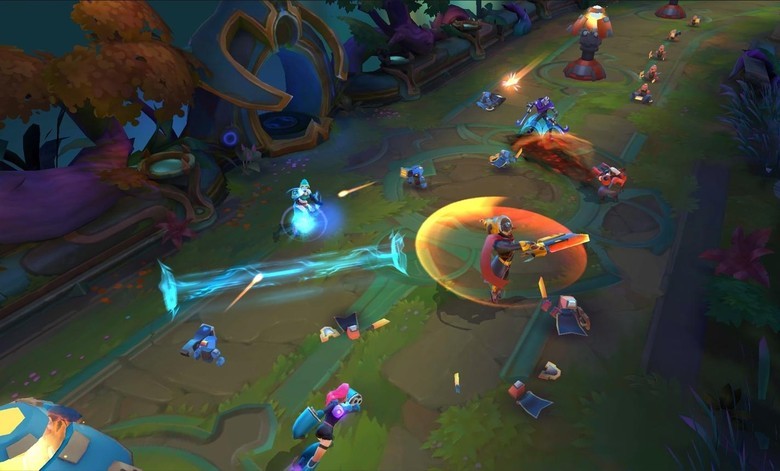
Ivan Fedyanin: This is a mobile MOVA, which carries all the characteristics of the original PC-shnoy MOVA. This is a competitive game genre where players in a group fight each other against a group of opponents. On the one hand, we needed to keep the whole filing of MOVA, so all the basic game elements like lines with creeps, bases, towers, heroes, in PVP and so on, we moved, but at the same time made sure that the game became mobile.
Our competitors made an excellent transfer of the MOVA genre to smartphones, but unfortunately, the session time was 30 minutes. And the player is left with a choice: ok, I have a game, I can play it sitting at home at the table, putting a tablet, because the tablet is better, otherwise the control will be inconvenient, I have to work Wi-Fi, because on 3G it can be inconvenient to play. Within half an hour I should not call anyone, because if they call, everything will be interrupted. And none of my teammates should fall through either. It turns out that sitting at home at the table, why not just open the laptop and play at LoL?

And then everything. These games are already competing with LoL, which is not very pleasant to compete with.
Our idea is that we allow the player to play not only at home. We have a short session, in our case it is 7 minutes. Slightly more than the average session, which is now on mobile phones, but for our audience this is exactly what they are really ready for. For those players who do not even have this time, for example, for those who ride the subway or bus, and you have to go out already or stand in line, to the toilet or something else. You just take the phone, open another mode. They are related to each other, but there is an offline game mode where you play essentially a campaign. Diablo-style game mode, where you take the same characters, go with them to the campaign, where there is a plot, develop them, dress and play essentially an RPG, just with the characters from MOV.
Alexander Kuzmenko: So, for the single part and for the cartoon, the hero is one?
Ivan Fedyanin: Yes. There are special items in the campaign that they put on, but they act only as part of a single player campaign in order not to spoil the balance in the PVP part.
Alexander Kuzmenko: It sounds interesting, you try and ours, and yours, and even if there are no 7 minutes, it's all the same ...
Ivan Fedyanin: Yes. We take the problems of mobile MOVA: management, session time, connection and matchmaking. We say that we can offer people when they have time to wait and what we can offer when there is no time at all. They invented two different game modes for different options, when there is time and when you don’t know how much time you have. And there will be two games, simply connected to each other.
Alexander Kuzmenko: The simplest question: I just can't decide on a programming language, but I really want to make games. What should I learn now? Watching my colleagues in the company, the techies, I understand that there are separate castes of programmers who know such exotic things that are still used, that they automatically have a salary twice as large as those who just C knows.
Ivan Fedyanin: I will answer not from the technical experience, I am a tester in the past, not a programmer, but from the management that I do not know examples of rare programmers who receive twice as much money due to rare specialization that they would not know original languages. Even if you want to dig deep somewhere, you still need to learn the “pluses”.
Alexander Kuzmenko: That 20 years ago, what is now, the basics you need to know.
Ivan Fedyanin: Of course, we need to learn everything new, the “pluses” also do not stand still, but I would start at least from them. Now you should not develop the first games from scratch, for this you need to take a ready-made engine, Unreal, Unity, to do something on it. They are easier to enter, much less to know. We must not learn to program, and learn to make games. These are slightly different things that cannot be combined. You can come up with simple, with interesting games, at a basic programming level, but already be a good game-maker. And vice versa, if you program abruptly, it does not mean that you can make a wonderful game. It is badly connected.
Oleksandr Kuzmenko : As the experience of the same mobile games, a la Doodle Jump, shows, even without knowing how to program and draw well, you can make such a hurricane gameplay that millions of races will go.
Ivan Fedyanin: This is not the way to success. If there is a cool idea that seems to be pleasant and do it for two weeks, then you need to take and learn a programming language at this level, do it and try. It will not work, as happens with the absolute majority of people - well, two weeks is not so offensive to lose. And the experience is priceless. But if we are talking about a systematic approach, that I want to play games, grow and make them - you need to have a much larger basis.
Alexander Kuzmenko: It reminded you of an interesting, curious case. A few years ago, I was at Firaxis, where the famous game designer Sid Meier, the author of Civilization, works, which recently released a sixth part. He told an interesting thing. All game designers who work in Firaxis are programmers by their first education. What is it done for? So that before he came with his idea, he quickly dashed off the simplest prototype, and came with the finished game. Such an approach.

Continuing the theme of mobile games from the same novice developers, usually all the representatives of the industry give advice: if you want to go somewhere, be sure to make mobile games, they are not so expensive, you can make a good game with enthusiasm for 10 thousand dollars. But I hear these tips for many years, the last three or four years, when the market is especially rushing, but I understand that it is also overheated. To enter the market now, you must have either a super unique product, or a lot of traffic, which the novice developer does not have. Do you think this is still a market with a small entry threshold, cell phones, or is it all?
Ivan Fedyanin: For a year now everything has changed, and the farther, the more changes. If at the start of the project it is not known where the traffic will be taken from, whether the publisher is this or an idea that has already found a response from people somehow, then you should not even begin. Then it is better to go on the same Steam, on the PC, and brief the players live, there are special tools for this. Look at feedback, and if everything is fine, then you can already make a mobile version, if the game is initially ready for this, if the session is not 30 minutes, conditionally.
Alexander Kuzmenko: Now there is a very common moment, Steam has a Greenlight, where you can post any heresy and receive immediately a live feedback.
Ivan Fedyanin: I hope that in addition to the obvious harm, my tape on Steam is no longer as useful as it used to be. Previously, I bought almost everything that went there, now I can not do that, it annoys me. I hope that the people who develop this will gain invaluable experience from this, and in time will begin to do something more interesting. But sometimes thanks to this something shoots. But this is also not a systematic approach. Rather, the Greenlight just as well can go with his bare idea, which for some reason like, if we talk about a very small young team.
If we talk about Greenlight for a more experienced team, they do it for other purposes, but also create early adopters, work with them to give them input because they know how to do it. A small team still can not and does not understand how to do it. They say - we have a game, and that's it, wait. For them, it works as a proof of what they are doing, that at least someone is interested.
Alexander Kuzmenko: Great, good, that there is such a tool. As I understand it, the development of mobile games is not such a cheap thing as it was 5-6 years ago?
Ivan Fedyanin: Neither by the people, nor by the cost, nor by anything.
Alexander Kuzmenko: Then the historical moment: you say that it’s not AAA, but while the game for the PC, XBox or PS is about the same cost as A, the game is mobile.
Ivan Fedyanin: Still not. Let's separate the XBox and PS. If you take Steam and A game there, then probably, they have almost reached the level of budgets. Especially if you take marketing, then 100% on mobile phones it is higher, otherwise nothing.
Alexander Kuzmenko: Because the market is overheated, there is a lot of everything there.
Ivan Fedyanin: If we take the development budget, it is a bit cheaper, but on the other hand, more mobile phones are being done. If you take the studio, then by the number of people they are already quite large.
Oleksandr Kuzmenko: Languages are a tool, and where should a beginner developer begin to dive into game devs? There must be things that you need to know besides languages.
Ivan Fedyanin: Of course. A few years ago, a person contacted me on Facebook, asked, and I still like the answer, the more he entered the game dev, he helped him. A person who wants to start, I would recommend to go to Wikipedia on the description of chess, there are variations of this game, there are about 300-400 options. If you come up with a thought to come up with the 301st, understand them, how they changed, why it is so - it means that you are a game designer, everything is immediately clear. And you can begin to think about it, how to enter into development from the point of view of developing features, developing rules of the game.
There is an easier way. These are people who are already playing board games, they are also somehow closer to this whole thing. There are a lot of game designers from the desktop environment. But again, I’m in a hurry to agree with Sid Meier: designers who do not have a mathematical background are not very useful in a very large area of game design tasks. Of course there is a narrative, but it will be difficult to use such a game designer as a full-fledged combat unit.
Alexander Kuzmenko: I'd add on my own. In the gaming industry, I have not seen a single person who would linger here for more than a few months, who would not like games in the first place. How to learn to write well? Read as many good books as possible. How to learn to make good games? First of all play all good. All the game designers I know are people who can be found in the smoking room and discuss the game that came out yesterday, because in the evening he played it. Play, love games.
Let's go back to the past. I understand that at first the first crisis, then the entire Internet, then the Chinese MMOs, they ruined the old nostalgic dzhevelnuyu development. In your opinion, why did this happen? Everyone claims that people just stopped buying games and buying any trash, but in my opinion, this is a more global phenomenon in our country. As a person who survived all this from the position of a game developer, as you think, such a dramatic change ... It happened just in a year.
Ivan Fedyanin: At the same time, my position was changing. Before that I was a tester, a tester manager, and after the crisis I became a project producer. And maybe my viewpoint has changed, but it seems to me that this is a crisis of management that could not grow on time. This is a false feeling when you have success, and it seems to you that you are doing everything right. It's like stroking a monkey when she does some kind of crap. That Black & White was a great game. If there is a wrong way to raise a monkey, then she’ll ruin everything and break it. Here, in the same way, when people come who are involved in project management in old companies, they have difficulty understanding how to set up the process and find the right developers. All because there were previously many false statements for which they were stroked, which is why it was fixed. Anyone who had a fragile situation, the crisis immediately stopped stroking, and began to do a-ta-ta. And this is good, because it is unclear how these strokes would end.
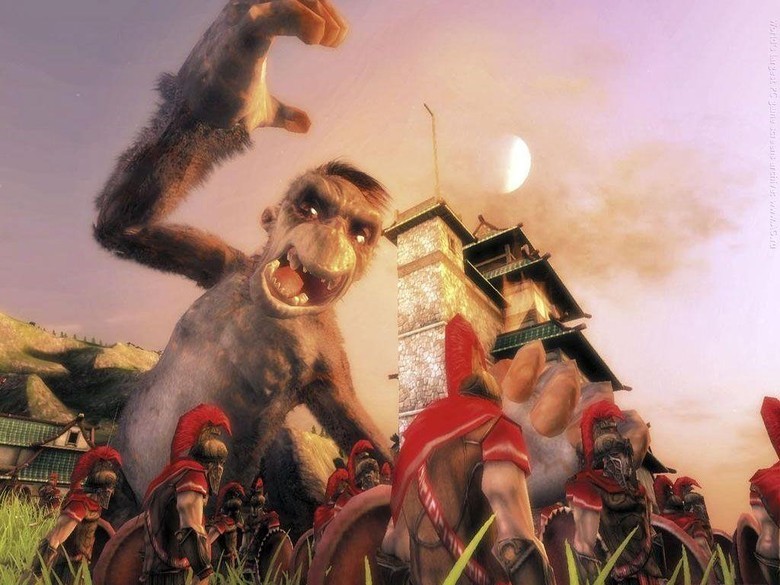
Oleksandr Kuzmenko: The gaming market is subject to crises lately. Look, over the past 10 years, the platforms and types of content that we consume there have completely changed. Remember the company Zynga.
Ivan Fedyanin: If you look not in Russia, but in the world ...
Alexander Kuzmenko: Everything is very similar. We have the same caricature curve ... Look, who survived in the world after all the crises? Majors who know for sure that we will certainly sell Assassin's Creed for 20 million minimum. And all this is the rest - what have you got there? A game? With Jack Black about rock music? Get out! As in Activision, there were cleansing at one time.
Ivan Fedyanin: Ubisoft found itself in small indie projects.
Oleksandr Kuzmenko: Everything is a bit different there, they are working in Blizzard. There you can once a year come to a very big bosses and say: here we drew artifacts with Corefans, programmed a little bit, maybe cool? Thus, they had a lot of things like Child of Light. It’s ridiculous to say that Blizzard has the same system, so Hearthstone appeared.
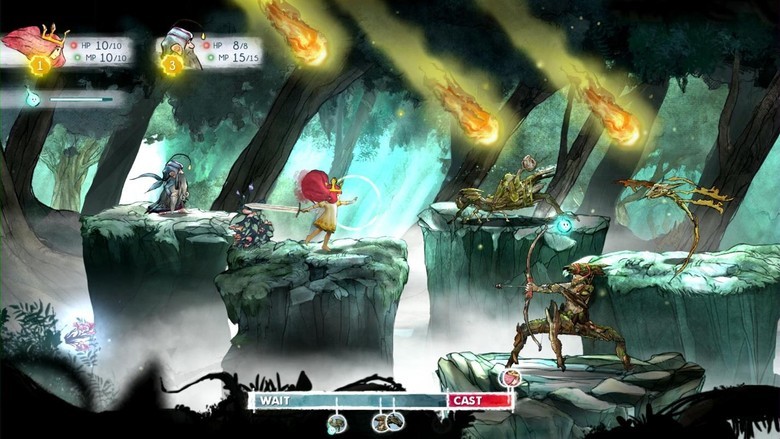
Ivan Fedyanin: They were still doing it quietly. I do not know how in Blizzard, but in Ubisoft I came into contact because of the fifth “Heroes”, and there they really had it that way, there was a special department that was engaged in the adoption of these “green lights”, it gives some direction. They explore the audience, which is now popular, and make some hypotheses that sell to developers. They say that if you dig there, there will be success. On the one hand, it turns out a one-sided monologue, they say what to do, what features in the game should be. On the other hand, no developer, if he does not have a brilliant idea, can not give this firm idea.
Alexander Kuzmenko: A provocative question about MOV. In our country, MOVA is not the most popular genre of games, but one of the top three. Therefore, lovers of Dotan, LoL and so on have clearly come. What is better, a lot of characters in MOVA or a few, but well-developed?
Ivan Fedyanin: Depends on the quantity. There is a mathematical function of this randomiz. If less than a certain number, the player will play with the same heroes against the same heroes. He will not feel the variability. But after 20-30, if we are talking about 3 on 3 gameplay, and if about 5 to 5, then after 40-50, then in essence, in each next session the hero will be different, and there it is important to focus on the quality of the development of the characters. There is not so important 51st, how important it is that all 50 were of high quality.
Also, if 3 for 3 fight, then 20 is important, but good, the 21st is not so important. But up to 20 it is important to finish this number, otherwise there will be little variation. I would say that at first it is important to make all possible variations of the role, possible variations of the gameplay with them, and then sharpen them much more.
: . , Ubisoft , , , . , , , , . Planet of Heroes, ?
: Mail.Ru Group , - . . , , . , .
, . , , , . , , , - . . — , , , , . - , .
: Wargaming, 15 , World of Tanks.

: 100 , , …
: — .
: 100 . .
: , , , . . « , , ».
, , . . Ubisoft, Assassin's Creed 5 , , 2000 . , .
, , « » Skyforge — , . , , UX- , - - ?

: , , , , , , . Assassin's Creed, Mafia , GTA, , , . , - , , .
, . , . , , , . , , . , , , , , . , .
, , . , 100%, 150%, .
: .
: , , , , , . , , , , - . , , , - , , ? . , , …
: - , , .
: , ? , , . , , , . , , 100 , . , . , , - , production value .
: . , , 90- — 2000-, 3D-, . , Android, , : , , Google.
, — Android…
: .
: , Android — , , , … , . What to do in this situation?
: , . , , -, , - , - , . , .
Not. , , . , , , . , , , — . , , , , .
: — . , , 50 , . : , , , , . , . 2014 — , -10 , . , , .
: , ? , , , , , ? .
: , , . ? , , Headhunter.
— , , , Facebook , , , , , . -, - Facebook. , . , .
: . , 90- 2000-, . . , , . - , , , , , . . ? , . , .
: , . , , . , . , , . , . -, , , , . , , , - , .
, , - . , , . , , , - .
, , - -, , . , , . , , . .
: . , , , . , . , 100 .
: , . , , , , . — .
: . , - . . .
: . , . , . , , . . , - . Clash Royal — .

- Shadow Grounds , , , Heroes Charge, -. , Clash Royal. , .
— . , , .
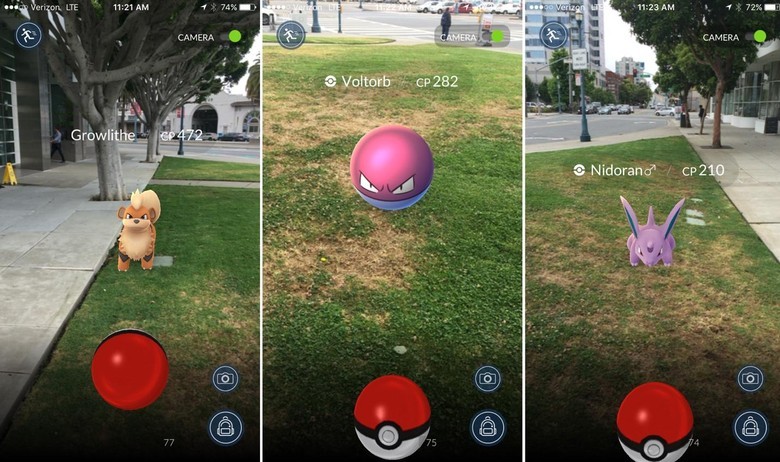
: . , , UGC-, , Ingress, . , , , , . , Nintendo. «».
, , , ? , ?
: . -, . Ingress . Ingress , , . , , . , . , — , , . , , , . , .

… , Ingress .
, .
: . Nintendo, , 3DS, , , 3DS .
: Nintendo - . , 3DS , , . , . , . , , .
: Nintendo Switch ? — .
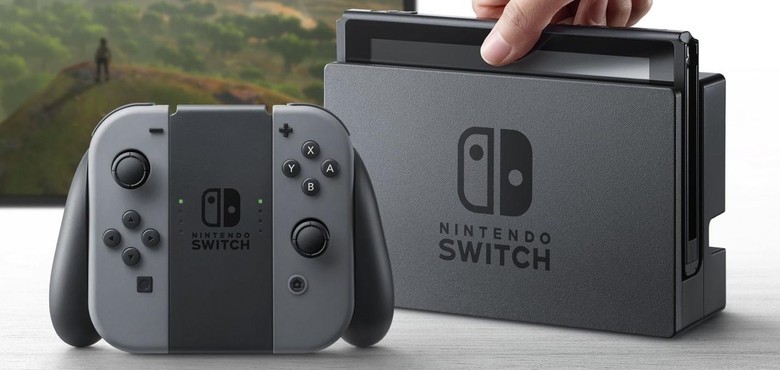
: , . , , , . , Wii, … -, . , — , - . ? , .
: Mario Zelda?
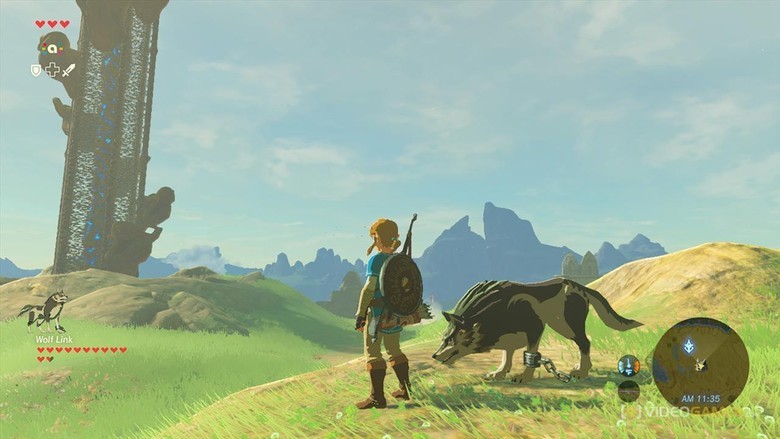
: Zelda Wii 3DS, . … , .
: .
: , .
: , WiiU, iPad, , ?
: .
: « ? Dota ». , . -, LoL , , Dota , .
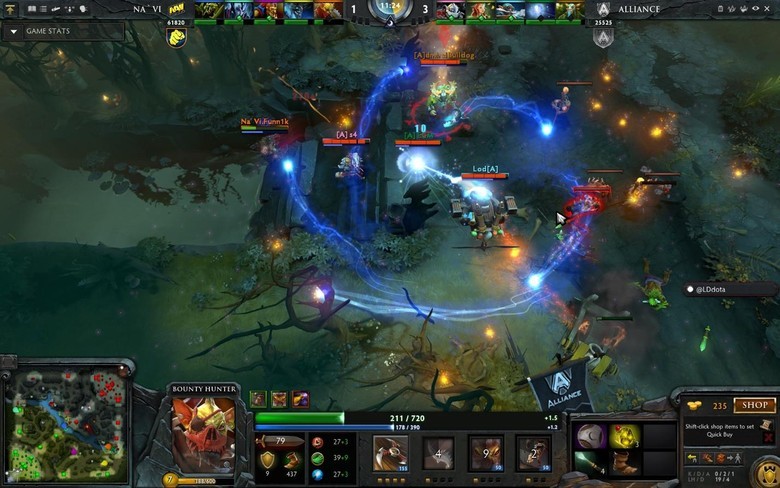
, , , : , LoL , Dota. , Minecraft.
: , , .
Dota, LoL. , Dota LoL. , 40 , , . , . LoL Dota, , .
, , , , -, -. , , Planet of Heroes. , . — , , .
: . ? Dota 2 30 , , . , . , , - , .
: - ?
: , - . , . , , , , , . Planet of Heroes.
: , Heroes of Newerth, , , , , , , - , . — ? «» — .
: .
: . , , , LoL, - , , , .
: , , 90-, - , : 95-.
: - , 83- , 84-, 85-, 86-… , , . , - .
: . , iPad .
: Minecraft.
: , , , . ? . , Baldur's Gate Planescape: Torment, Kickstarter . , Wasteland 2, . : , 20 . , , 94-, Wizardry 7, , XXI , , . - «» - . , - Skyforge , . . .
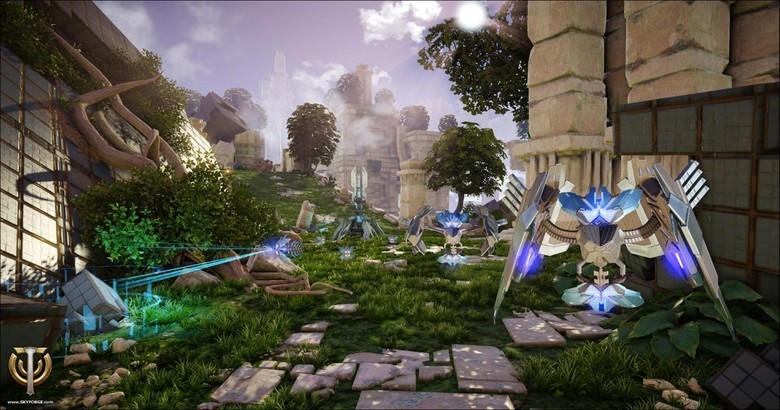
: VR . VR. Nintendo Switch, , , , , , : - ?
: -, . , , .
PS VR . , , - Batman Arkham VR — . , , .

, VR, , - , . , , . , , , , , , , VR .
: GDC , , VR.
: 500 , — . VR — , - , . , . — , .
: , .
: . , VR. , , , . . . , , .
, , , , — , .
, VR — , .
, - , , Google Kickstarter, welcome. , , , , — welcome. , . , , , . .
: , , VR. , . Mail.Ru Group , VR- VR Invaders. , , . , 10 VR . .
: , , , , . , , , . , , , .
: , , , — . . , , , 150 100 .
VR , ? . - , . , .
: « »? , , . , VR .
, , , . - , , , , . , . , , .
: , ?
: . , , , , . gameplay loop, . . , -. , -, , , , . , . .
20 . - , LoL Dota , , , .
, , . - , , , . - , : , , , , , , …
: .
: , , , . , — , . .
: , . , UX-, , . , , , , … , . — .
. - , . ( -)? . , , 15 .
: , , — . , , , — . - - , . , , . . , , ? , . .
: -, , . . ?
: ? ?
: .
: — . - , -, — , . . ? , - , .
— -, - , , . — , .
: , , . , .
: , , . , . , , - -, .
: , . «» . …
: .
: , , Fallout. …
: .
: , «», , , .
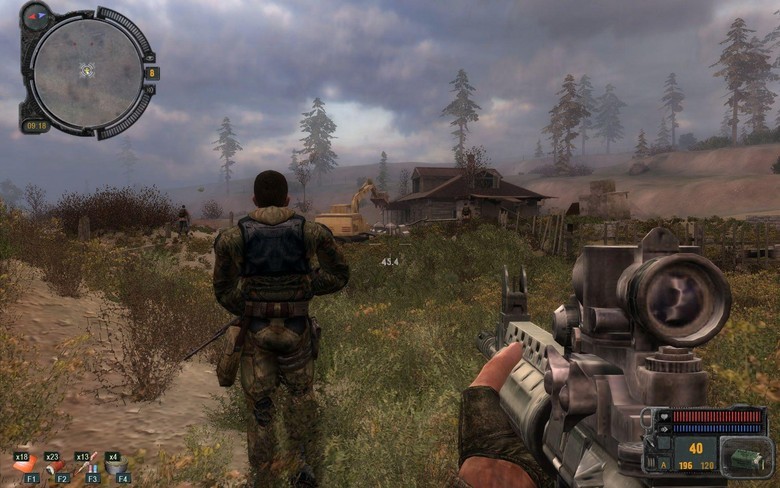
: , , …
: , «», Venom , ? , . , , . , . , .
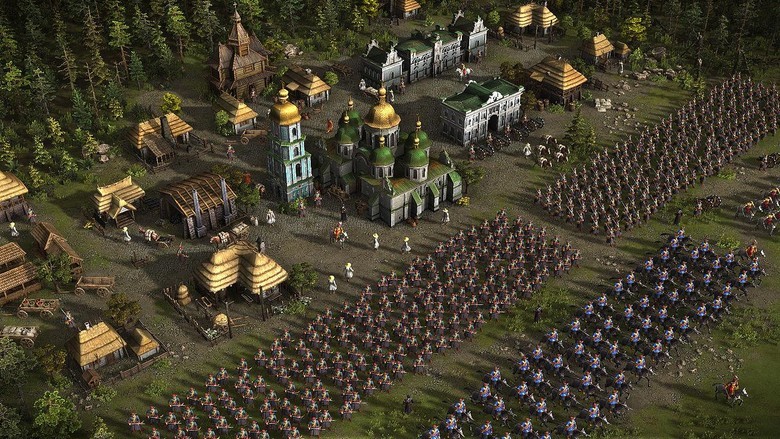
: , , , , . , — . , .
: -.
: , . , , , , . : , , , , , — .
: , . . , , , -, .
: . - , , Steam , , . , 800-1000 , , . . . , , , , . What for? ? , ? .
. , , , . , , , . , , , .
— . , -, , , - , …
: : — .
: . . , , , , , . , .
: , - , .
: , , . — . , - , …
: . , , , ? .
: …
: , …
: .
: .
: . , , , . , , — , , — . , , , , , . .
, , , , . .
, , .
: , : — , , , .
, , , , . , FastForward. , , Nival . Nival, . 15 , , .
Source: https://habr.com/ru/post/372843/
All Articles